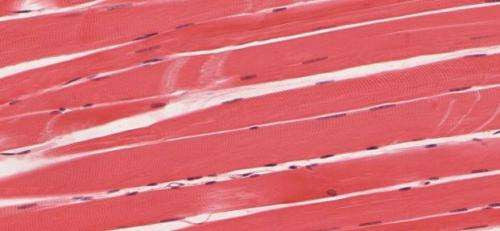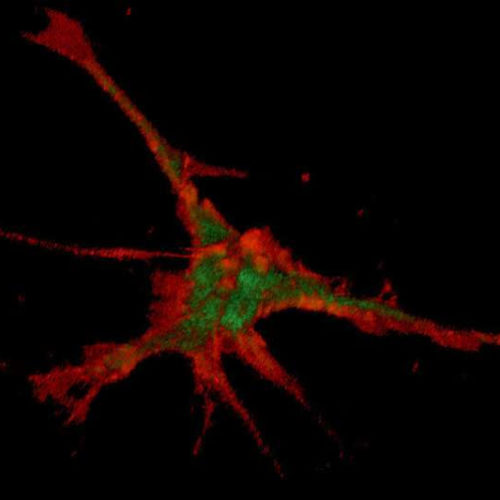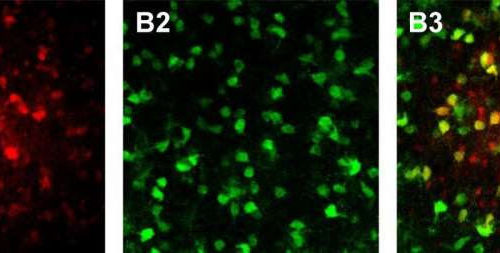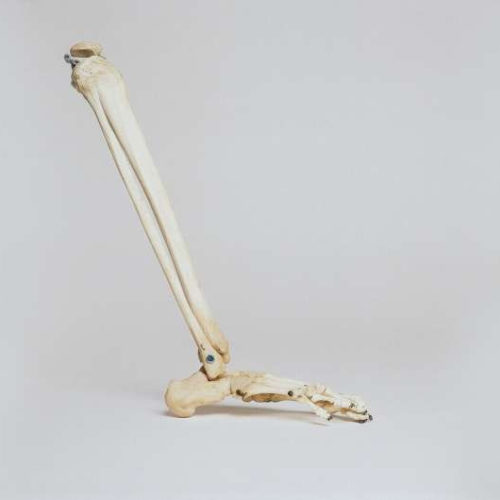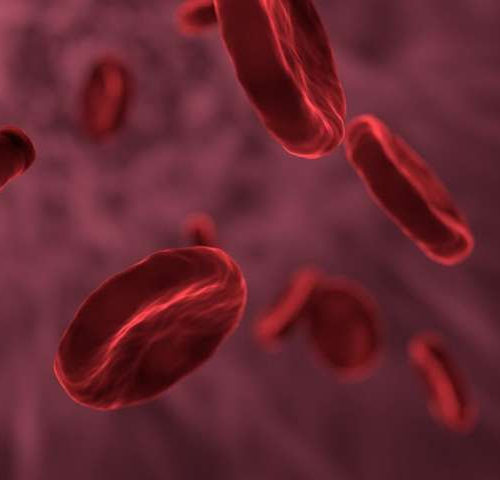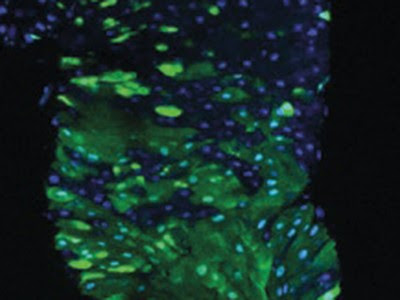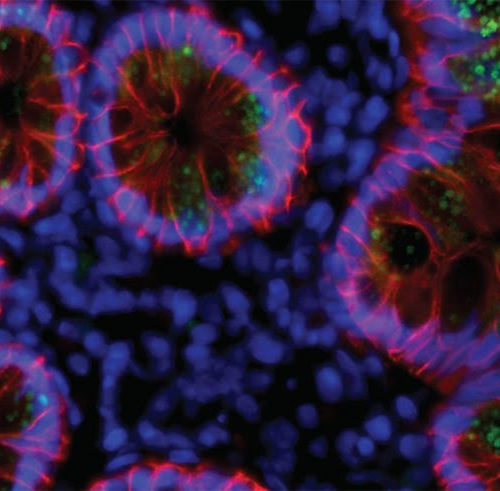MICHIGAN MEDICINE – UNIVERSITY OF MICHIGAN Scleroderma, a chronic and currently incurable orphan disease where tissue injury causes potentially lethal skin and lung scarring, remains poorly understood. However, the defining characteristic of systemic sclerosis, the most serious form of scleroderma, is irreversible and progressive scarring that affects the skin and internal organs. Published in iScience, Michigan Medicine’s Scleroderma...
NAD+ can restore age-related muscle deterioration
by Ecole Polytechnique Federale de Lausanne Skeletal muscle tissue. Credit: University of Michigan Medical School The older we grow, the weaker our muscles get, riddling old age with frailty and physical disability. But this doesn’t only affect the individual, it also creates a significant burden on public healthcare. And yet, research efforts into the biological processes and biomarkers...
Parkinson’s: Initial steps to show nerves their growth direction magnetically
by Ruhr-Universitaet-Bochum Magnetically, the nanoparticles found their way into the tips of the processes of nerve cells. Credit: Molekulare Neurobiochemie One reason why nerve damage in the brain cannot regenerate easily is that the neurites do not know in which direction they should grow. A team of researchers from Ruhr-Universität Bochum (RUB), Sorbonne University Paris, and the Technische...
Brain cell network supplies neurons with energy
by University of Bonn When an astrocyte in the thalamus is filled with a dye, it diffuses into neighboring cells of the network (red). These include many oligodendrocytes (green), as shown by the overlay (B3, yellow). Credit: © Group Steinhäuser; from: Cerebral Cortex, January 2018;28: 213-222; doi: 10.1093/cercor/bhw368 The human brain has about as many neurons...
New method heals skeletal injuries with synthetic bone
by Lund University Credit: Unsplash/CC0 Public Domain Researchers at Lund University in Sweden, in collaboration with colleagues in Dresden, Germany, have developed a way of combining a bone substitute and drugs to regenerate bone and heal severe fractures in the thigh or shin bone. The study, published in the research journal Science Advances, was conducted on rats, but the researchers think that...
Researchers discover mechanism behind most severe cases of a common blood disorder
by SLAC National Accelerator Laboratory Credit: CC0 Public Domain With a name like glucose-6-phosphate dehydrogenase deficiency, one would think it is a rare and obscure medical condition, but that’s far from the truth. Roughly 400 million people worldwide live with potential of blood disorders due to the enzyme deficiency. While some people are asymptomatic, others suffer...
Anti-ageing effects of protein restriction unpacked
Cristal M. Hill & Matt Kaeberlein Two animal studies show that restricting the dietary intake of branched-chain amino acids can extend lifespan by modulating the mTOR signalling pathway. But more research is needed before this diet should be recommended in people. The idea that dietary restriction can be used as a tool to increase lifespan has been a...
Gene-cutting system may play second role as a genetic dimmer switch
Reviewed by Emily Henderson, B.Sc. Jan 19 2021 In a series of experiments with laboratory-cultured bacteria, Johns Hopkins scientists have found evidence that there is a second role for the widely used gene-cutting system CRISPR-Cas9 — as a genetic dimmer switch for CRISPR-Cas9 genes. Its role of dialing down or dimming CRISPR-Cas9 activity may help...
COVID-19 SPIT TESTS WORK JUST AS WELL AS NOSE SWABS
JANUARY 19TH, 2021,POSTED BY FABIENNE LANDRY-MCGILL “Previous studies on the performance of saliva tests showed mixed results, but most of them compared saliva tests to the standard nasal swab test, as if it was a perfect test,” says Guillaume Butler-Laporte. “Interestingly, there are no perfect tests for COVID-19.” (Credit: Omar Marques/Getty Images) Two new studies...
The immune system mounts a lasting defense after recovery from COVID-19
As the number of people who have fought off SARS-CoV-2 climbs ever higher, a critical question has grown in importance: How long will their immunity to the novel coronavirus last? A new Rockefeller study offers an encouraging answer, suggesting that those who recover from COVID-19 are protected against the virus for at least six months,...

